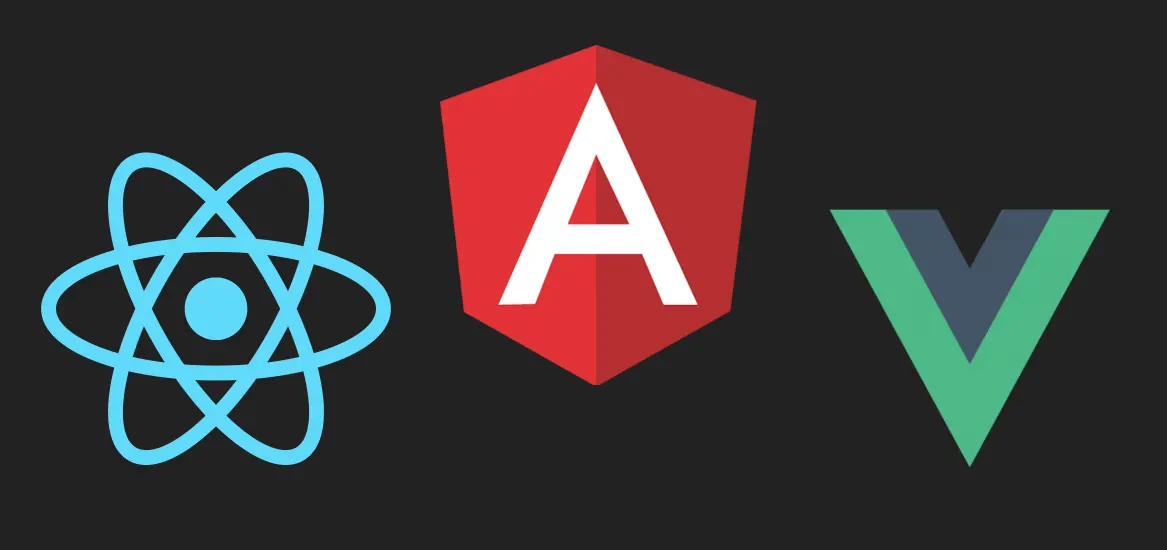App development frameworks and front-end resources are causing a 'problem of plenty' in 2019. There are so many options that you may wish to analyze. But none of them are leading to a conclusion for the best choice in 2019. According to Indeed.com, about 78% of 60,000+ job offers required React as a core skill. The next in line is Angular. After the release of Angular 2 and a significant changeover, front-end development tool has rapidly reached the pinnacle of fame and mass adoption among developers. Angular has a job share of about 21%. There is a newly introduced library among JavaScript-based options. VueJS is yet to become as famous as the contemporaries. But it surely has a huge potential; presently sitting at less than 1%. Online courses and tutorials are also available for deep learning of all three.
Conventional vs. Performance-driven vs. Productivity
React JS is generally considered as an older, more mature, and sophisticated product that offers classical app development operations. It is because of the straightforward design and consistent efforts of the contributing population. Angular has had a complete change-over from angular JS to angular 2; and a further sub-versions of angular. It has become much more stabilized while growing in the past. It certainly adds a significant aspect of much-needed productivity. It's working along with TypeScript and auto-complete capability for completing external HTML templates make it a brilliant option.
Angular is a very productive and new-generation programming language that comes with the supreme power of NPM libraries. They are directly accessible from CLI and web-based components.
While the former two are JavaScript centric, Vue.js is single-handedly empowered by HTML. It is super easy to optimize and manage HTML codes blocks that are used in different components. The likes of the JavaScript make it a super easy and adaptable option compared to React and angular. It is because of their relatively complicated design and architecture. Moreover, Vue.js is disseminating the power of its capabilities with detailed documentation. It is easier as it requires basic knowledge of HTML and JavaScript. Further, it helps you learn it in the least possible time.
Tricky vs. easier vs. super easy to learn
Framework specific codes motivate a practice of thinking in terms of JavaScript code and implementing them with easy code snippets. Further, they require manual optimization and picking of data structures. It is an in-depth technical concept involving virtual DOM implementation and various rendering optimizations. One should be well versed with these concepts before you can call yourself a pro at React.
As mentioned earlier, angular works parallel to TypeScript and exceptional support for it. It is relatively easier to learn because of direct commands. It also has ready to use web components
based on Angular web apps interface. It is a very convenient option for building web interfaces because of the ease of access to detailed documentation. However, it requires a little bit of time. Moreover, it is very convenient and less complicated to implement apps and web interfaces in angular. It has one-way data binding that enables singular behavior for apps which minimizes all possibilities of errors. It eventually reduces the overall time of development, the turnaround time of the app and quickly developed a well-tested app in relatively lesser time.
It comes with an ultimate capacity of building web interfaces and single page application. They can be easily built with simple JavaScript-based code. They generally require very fewer inputs from framework-specific knowledge. Cutting it short, you can expect yourself to manage building applications with excellent efficiency. One can be decently productive with basic proficiency in JavaScript and basic concepts of programming.
Server-side support vs. front-end vs. versatile
Exciting features like create React application generator certainly make React one of the most widely used development frameworks in the present day. It is seamlessly easy to create
first-class progressive web apps with React. Its robust structure works well with the backend JavaScript engine primarily focusing on front-end applications. It comes with excellent programming scope and complete server-side support for interoperability. It allows secure connectivity with third-party microservices and compatibility with external libraries. These resources make it a genuine proposition for developing versatile web interfaces and apps. Generally, full-stack developers use a combination of JavaScript enabled libraries for building detailed, comprehensive web apps for solving a problem. Angular is usually handpicked for front-end development solution. Its MVVM (Model View ViewModel) architecture enables developers to be more productive by developing functionalities; one at a time. It also lets you section size the app structure for a development plan. It is versatile and super scalable due to various reasons. It has a very tiny size around 20 KB. It brings in a knack of speed and complete flexibility.
Professional vs. Solution-oriented vs. customizable
React is a potential option in 2019 because of its capability to implement functional programming, creating easy to test and highly reusable code. It also comes with an add-on for
managing application state to React. Redux is very useful, easy to learn, and master. It lends developers an opportunity to make the applications type-safe with Microsoft typescript or
Facebook flow. It is commendably backed by native support for JSX. Professional applications require a consistent effort for updating and updating applications. React has Facebook powered
CodeMod that can help you automate a large portion of the overall upgrade process. There is easy management of dependency injection in closely related features and applications
that make up the overall solution. It adds modularity and lends a structure based on the architecture of specifically created app with dynamic scalability options.
How is the tech world using React, Angular, and Vue.js?
React
React is silently playing like a master of scalability and is generally seen put under use for applications requiring data flow, content management. It lets you quickly build applications that
are rich in concept, UX but have easy to use functionalities. It has undoubtedly empowered super-scaled social media networks and content management platforms including Facebook, Instagram, Netflix, WhatsApp, Slack, Intercom, and many more. There are specific attributes, and all of them collectively make React a very sophisticated choice. It is beneficial when you have critical performance concern. But they are easy to craft and super scalable apps that require consistent innovation tweaking of features and customizable customer experience.
Angular
Angular is an entirely web-centric development platform that is used by IT product and service companies. The companies include AWS, Adobe, UPS, Cisco, and even Apple for their web-based products. The framework yields relatively more comfortably used and quickly coded applications. It motivates companies like Google, Telegram, Weather, Crunchbase to build their online presence with the foundation of angular. It is expected to sustain in the future years to come.
Vue JS
It is interesting to note that VueJS presently has a small market share. Butt is aggressively acknowledged by companies that are focusing on consistent technological innovation. Their service beneficiaries include Xiaomi, Alibaba, WizLab, EuroNews, Gitlab, Grammarly, Reuters being a few.
Conclusion
It is a systematized analysis of the three major options that confuse tech enthusiasts all across the development fraternity. The difficulty generally revolves around understanding the capabilities and kind of applications the framework can host. The nature of business and strategies took up by companies tell a lot about the thought process for choosing the right development platform. The various chosen platforms help us validate the core capabilities of each framework. If there is a need for less complicated functionalities but highly scalable apps, you can go with the proven capabilities of React.
People with app ideas build performance-driven robust Internet resources that can create massive magnetizing traffic. Angular is the right solution for their front-end development needs. There are founders who fix their focus on using highly productive development practices. The thought also matures with an influence of current trends. They can use VueJS for more natural development and reduced time material cost VueJS offers more effective, secure and development capabilities compared to all others under consideration. The present situation drifts a lot of attention to VueJS as expected in the future. Web development Company leads the way forward with new-age programming languages and better practices. The scenario of market share and awareness of contributors is most likely to change in the coming years.









